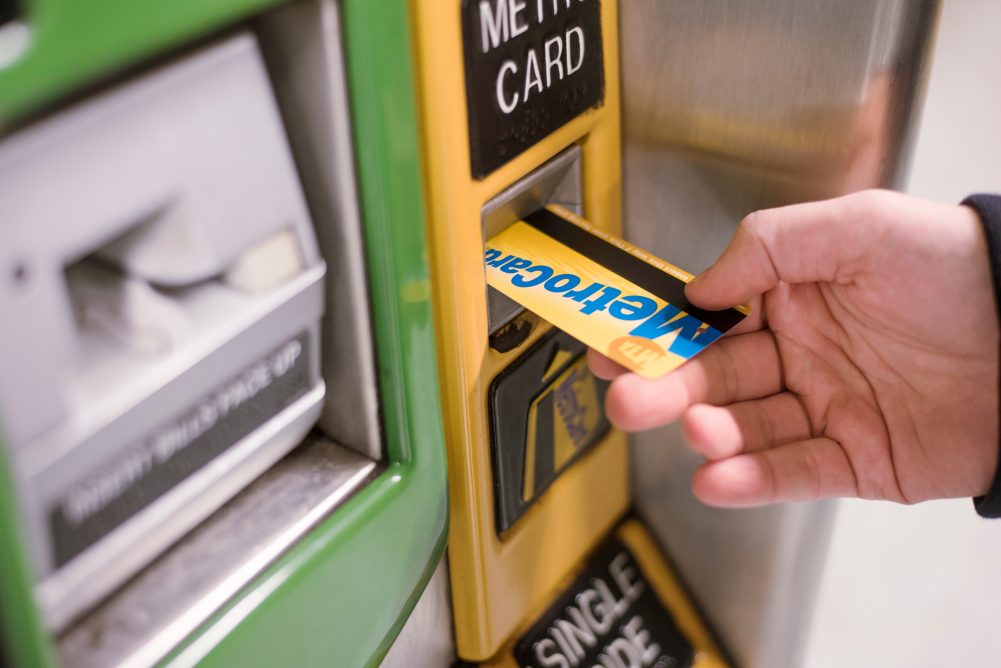
Today’s announcement still leaves out the majority of the estimated 800,000 residents living below the poverty line who were originally promised half-price MetroCards
(New York, NY) — Following today’s announcement regarding the next steps in launching the Fair Fares program, New York City Comptroller Scott M. Stringer released data that spotlights the estimated 800,000 New Yorkers who were originally promised half-price MetroCards beginning on January 1, 2019. However, the City has significantly scaled back initial eligibility to just a small subset of Cash Assistance and SNAP recipients, leaving out hundreds of thousands of New Yorkers living below the poverty line who will continue to face a significant financial burden to purchase a MetroCard.
“The good news is that Fair Fares is finally leaving the station. The bad news is that after today’s announcement, the price of a MetroCard will remain an obstacle for the vast majority of the 800,000 New Yorkers who were originally promised relief. That’s hundreds of thousands of families who will still struggle to get to work or a job interview because they can’t afford a full fare. For their sake, we need to make sure this delay doesn’t become a derailment,” said Comptroller Stringer.
When the $106 million program was originally announced as part of the Fiscal Year 2019 City budget, Fair Fares was intended to provide half-priced MetroCards to 800,000 adult New Yorkers living below the poverty line – $25,100 for a family of four.
Comptroller Stringer’s office took a look at those families and found the following:
Nearly 300,000 potentially eligible New Yorkers live in just 12 community districts, with over 50% residing in Brooklyn or the Bronx;
60% are either unemployed or struggling to find a job;
79% are people of color;
58% are women;
77% do not have an Associate’s or Bachelor’s Degree;
52% were born abroad; and
44% are parents living with children in their home.
Below is a complete breakdown of the data:
Community District
| Population | |
|---|---|
| Belmont, Crotona Park East & East Tremont | 30,898 |
| Washington Heights, Inwood & Marble Hill | 30,763 |
| Hunts Point, Longwood & Melrose | 29,537 |
| Morris Heights, Fordham South & Mount Hope | 26,885 |
| Flushing, Murray Hill & Whitestone | 24,834 |
| Concourse, Highbridge & Mount Eden | 21,784 |
| Castle Hill, Clason Point & Parkchester | 21,732 |
| Sunset Park & Windsor Terrace | 21,470 |
| Borough Park, Kensington & Ocean Parkway | 20,173 |
| Bedford Park, Fordham North & Norwood | 19,576 |
| East Harlem | 19,464 |
| East New York & Starrett City | 18,846 |
By Borough
| Population | % | |
|---|---|---|
| Bronx | 186,348 | 23% |
| Brooklyn | 268,679 | 33% |
| Manhattan | 147,936 | 18% |
| Queens | 174,423 | 22% |
| Staten Island | 28,511 | 4% |
Unemployment Status
| Employment Status | Number |
|---|---|
| Employed | 319,626 |
| Unemployed | 110,203 |
| Not in labor force | 376,068 |
Ethnicity
| Ethnicity Race | Number | % |
|---|---|---|
| Hispanic | 312,635 | 39% |
| White | 165,568 | 21% |
| Black/African American | 180,799 | 22% |
| Asian | 131,602 | 16% |
| Other | 15,293 | 2% |
Education
| Number | % | |
|---|---|---|
| No High School Degree | 207,258 | 26% |
| Only HS Degree | 297,847 | 37% |
| HS Degree + Some College | 114,364 | 14% |
| Associates Degree | 45,254 | 6% |
| College Degree | 141,174 | 18% |
Gender
| Number | % | |
|---|---|---|
| Male | 336,977 | 42% |
| Female | 468,920 | 58% |
Origin
| Number | % | |
|---|---|---|
| Foreign Born | 417,574 | 52% |
| Born in the United States | 388,323 | 48% |
Citizenship
| Number | % | |
|---|---|---|
| American Born | 388,323 | 48% |
| Born abroad of American parents | 7,681 | 1% |
| Naturalized citizen | 145,667 | 18% |
| Not a citizen | 264,226 | 33% |
Language
| English Language Skills | Number | % |
|---|---|---|
| Does not speak English | 60,347 | 7% |
| Yes, speaks only English | 312,061 | 39% |
| Yes, speaks very well | 210,312 | 26% |
| Yes, speaks well | 101,821 | 13% |
| Yes, but not well | 121,356 | 15% |
Children
| Number | % | |
|---|---|---|
| Live with own Children in the Home | 353,974 | 44% |
| No Children in the Home | 451,923 | 56% |
Note: This data corresponds to the pool of eligible recipients identified in the “The Transit Affordability Crisis,” the 2016 report that launched the Fair Fares campaign.
